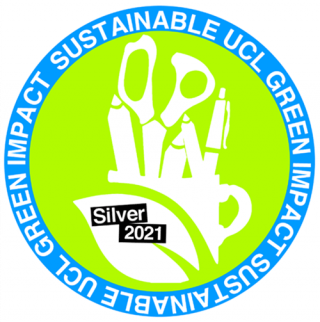University College London (UCL) is a world-class, multi-disciplinary university. The Institution recognises that its activities and operations can result in impacts on the environment and is therefore working to reduce the negative effects of these activities and operations whilst promoting and striving for positive outcomes where possible. Travel represents one such activity.
Whilst travel is necessary for the UCL community and its core activities - for study, for work and to conduct research - UCL is seeking to reduce the amount and impact of travel associated with fulfilling these core business activities. For this reason, video conferencing and remote working has become a very promising tool to carry out work activity from anywhere, while reducing the impact due to travelling.
UCL has a host of ready-made tools to facilitate working away from campus.
Read on to find out about the selection of tools, the best way to use these products and how to find out more.
Please use existing IT services whenever possible, before turning to services provided by third parties, even if they offer free features.
For more information visit the Use UCL's IT Services website.
Information on setting up your home working environment including:
- How to set up a printer/monitor
- How to optimise your home broadband connection
- Using your broadband service effectively
For more information visit the UCL home working setup website.
How to access your UCL email and calendar from any computer or device connected to the internet.
For more information visit the UCL email and calendar website.
Microsoft offers a suite of online tools that can be used on any computer that is connected to the internet including Word, Excel, PowerPoint, OneNote and OneDrive for Business.
For more information visit the UCL Microsoft Office website.
During this period of remote working there are several different services and tools available at UCL to help you stay in contact with colleagues and students. This section includes:
- Setting up, installing and using Microsoft Teams
- Starting a call and meeting in Teams
- Using Teams for collaborating
- Remote working video guide
For more information visit the UCL communicating and collaborating remotely website.
Information on how to access your documents when working remotely through using:
- Staff mapped network drives
- OneDrive
For more information visit the UCL file storage website.
How to connect to the UCL's network and desktop when working remotely including:
- Choosing the right way to connect
- Installing VPN
- Installing Desktop@UCL
For more information visit the UCL systems and services website.
Stay secure
How to keep your computer and UCL account details secure.
For more information visit the UCL stay secure website.
What is Video conferencing?
A video conference is a live video connection between people in separate locations for the purpose of communication or interaction. Videoconferencing allows people to communicate visually from anywhere in the world.
Uses of videoconferencing include:
- Distance Learning
- Sharing ideas with students at other universities
- Job Interviews
- Giving and receiving presentations to and from sites from around the world
- Conducting meetings between research groups and academics based at different universities.
The Benefits
If you hold regular meetings involving a substantial amount of travel, you might appreciate the benefits of holding some of them over a video-conference link at UCL. Benefits include:
- Reduces travel expenses
- Saves time
- Increases productivity
- Increases collaboration
- Improves communication
- Allows multi-point meetings across time zones & international boundaries.
UCL Videoconferencing facilities
 Close
Close




